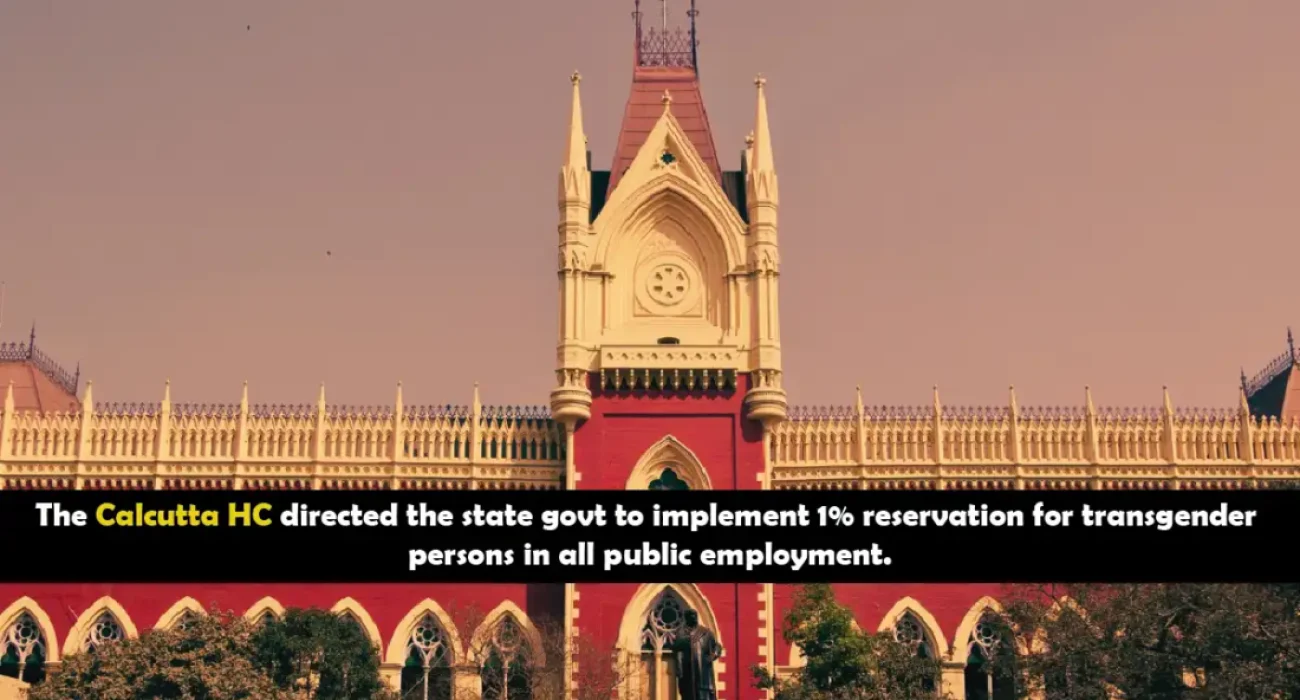

Table of Contents
ToggleAccording to the Supreme Court’s NALSA recommendations, the West Bengal government has been ordered by the Calcutta High Court to guarantee a 1% reservation for transgender individuals working in public service inside the State.
A transgender person who had passed the Teachers’ Eligibility Test (TET) in 2014 and 2022 submitted a petition, claiming that they were not contacted for an interview or counseling session. The petitioner requested compensation for being disregarded even though they met the requirements for eligibility.
The petitioner claimed that because of their transgender status, they were excluded from the counseling and interview process even though they passed the TET. They argued that the Supreme Court’s orders in the NALSA v. Union of India case, which require reservations and protections for transgender people in public service, were broken by this exclusion.
The West Bengal government, through its representatives, acknowledged the policy for transgender reservations but admitted that it had not been fully implemented as per the Supreme Court’s NALSA guidelines. The government argued that steps were being taken to comply with the directives, but the process was ongoing.
The Supreme Court’s ruling in NALSA v. Union of India, which acknowledges transgender people as a socially and educationally underprivileged community entitled to reservations in public employment, was cited by a single bench of Justice Rajasekhar Mantha. The State had not yet put the required reservations in place for transgender people, the court observed, in spite of the Supreme Court’s explicit orders.
Judge Mantha emphasized that transgender people must receive all privileges, including preference in public employment, and be treated as “socially and educationally backward” under the terms of the NALSA ruling, which requires state and union governments. The West Bengal government’s transgender reservation policy, according to the Court, was not entirely compliant with the Supreme Court’s ruling.
The Chief Secretary of the West Bengal government was instructed by the High Court to guarantee a one percent reservation for transgender individuals in all public job positions within the State. In order to make sure the petitioner benefits from the required reservation, the Court directed the West Bengal Board of Primary Education to set up an interview and counseling for the petitioner.
The decision issued by the court seeks to protect the rights of transgender people as acknowledged by the Supreme Court and guarantee their access to public employment opportunities in West Bengal.
IAW resources
Browse our help directory